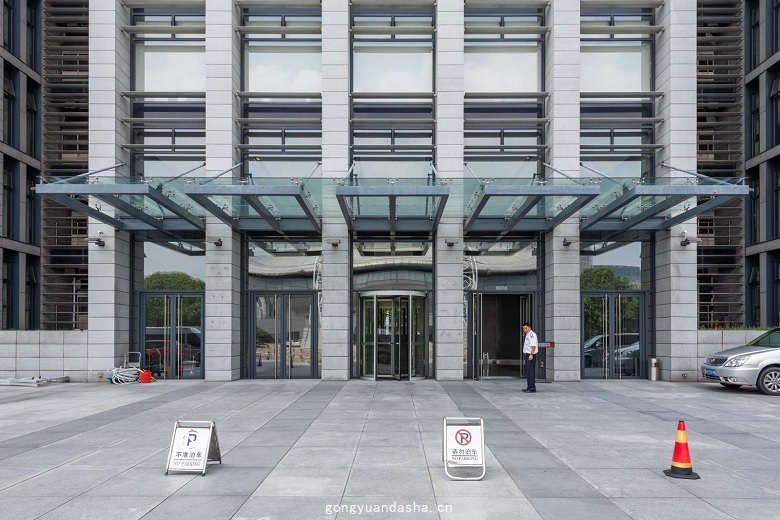PIFI Day on the Design of AI-Enabled Safety-Critical Systems

The CAS President’s International Fellowship Initiative (PIFI) is a prestigious international exchange program launched by the Chinese Academy of Sciences to promote global scientific collaboration and academic exchanges. By fostering long-term partnerships, PIFI makes a significant contribution to advancing scientific innovation and addressing global challenges. PIFI DAY is the flagship event of this initiative; it aims to promote discussions on solutions to cutting-edge challenges and shape future research directions via intensive frontier academic presentations and exchanges in a specific research field.
The PIFI Day affiliated with ICFEM 2025 focuses on the design of AI-enabled safety-critical systems. This is an interdisciplinary subject that spans the areas of mathematics, computer science, and control theory. In particular, as artificial intelligence (AI) components are increasingly employed to enhance the effectiveness, autonomy, and adaptability of safety-critical systems, the resulting uncertainty and weak interpretability pose significant challenges to the well-established formal methods developed for ensuring the reliability and effectiveness of hardware/software systems. The PIFI Day aims to foster an intensive exchange of thoughts and ideas on potential refactoring and innovations of formal techniques in support of the modeling, analysis, verification, and synthesis of AI-enabled safety-critical systems.
Program Co-Chairs
- Mingshuai Chen, Zhejiang University, China
- Jim Woodcock, University of York, UK
- Naijun Zhan, Peking University, China
- Lijun Zhang, Institute of Software, Chinese Academy of Sciences, China
Program Committee
- Weiwei Ai, University of Auckland, New Zealand
- Yamine Ait-Ameur, University of Toulouse, France
- Ahmed Bouajjani, Paris Cité University, France
- Mingshuai Chen, Zhejiang University, China
- Simon Foster, University of York, UK
- Joost-Pieter Katoen, RWTH Aachen University, Germany
- Kim Larsen, Aalborg University, Denmark
- Dominique Méry, University of Lorraine, France
- Partha Roop, University of Auckland, New Zealand
- Sven Schewe, University of Liverpool, UK
- Jean-Pierre Talpin, INRIA, France
- Mark Trew, University of Auckland, New Zealand
- Jim Woodcock, University of York, UK
- Naijun Zhan, Peking University, China
- Lijun Zhang, Institute of Software, Chinese Academy of Sciences, China
Program
| Date | Time | Speaker | Title |
|---|---|---|---|
| Nov. 8 | 09:20-09:30 | Forum Opening | |
| 09:30-10:10 | Jim Woodcock | A bi-CKA True-Concurrency Semantics for Orc | |
| 10:10-10:40 | Tea Break | ||
| 10:40-11:20 | Dominique Méry | From System Events to Software Operations for Refinement-based Modeling of Hybrid Systems | |
| 11:20-12:00 | Bohan Li | Local Search Algorithms for SMT on Arithmetic Theories and Their Applications in Terminal Scenarios | |
| 12:00-14:00 | Lunch Break | ||
| 14:00-14:40 | Miaomiao Zhang | Compositional Verification of Timed Automata | |
| 14:40-15:20 | Yamine Ait-Ameur | A Framework for Formal Modelling of Cyber-Physical Systems | |
| 15:20-15:50 | Tea Break | ||
| 15:50-16:30 | Mingshuai Chen | Derivative-Agnostic Inference of Nonlinear Hybrid Systems | |
| 16:30-17:30 | Panel Discussion | ||
| 18:00 | Reception Dinner | ||
| Nov. 9 | 09:30-10:10 | Jean-Pierre Talpin | Taming the Internet of Things Using the Hybrid Pi Calculus |
| 10:10-10:40 | Tea Break | ||
| 10:40-11:20 | Étienne André | Monitoring Cyber-Physical Systems Using Formal Methods | |
| 11:20-12:00 | Alvaro Miyazawa | Modelling, Simulation and Verification with Diagrammatic Physical Models | |
| 12:00-14:00 | Lunch Break | ||
| 14:00-14:40 | Xaver Fink | Neural Network Robustness Verification for Control Systems at CERN | |
| 14:40-15:10 | Tea Break | ||
| 15:10-15:50 | Shuling Wang | Formal Semantics and Certified Implementation for Simulink Diagrams | |
| 15:50-17:00 | Panel Discussion | ||
| 18:00 | Dinner | ||
| Nov. 10 | 09:30-11:30 | Campus Tour (Meeting Point: 38 Zheda Road) | |
| 11:30-14:00 | Lunch at Xixi National Wetland Park | ||
| 14:00-18:00 | Excursion: West Lake | ||
Location
Address: Gongyuan Building NW. Qun Building (Qiushi Road 8, Xihu District; Navigate via Google Maps).
The event taks place on the 21st Floor; our staff will guide you to the specific meeting room.
Address in Chinese: 西湖区求是路8号公元大厦北楼21楼
